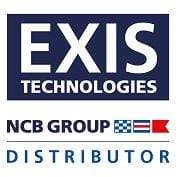The Nautical Institute organized a one-day event in Kent, England, last November, held to discuss the IMDG/ADR interface. As HCB reports, the event developed into something of a face-off between shippers and carriers over container weighing. Below is an excerpt from HCB's coverage:
If problems exist, then training is usually the first weapon in the armoury. The IMDG Code now famously requires training for all shoreside staff involved in the transport chain. A lot of those employees will already be receiving training in general safety provisions and may in any case not need in-depth instruction in the Code and its provisions but, as Roger’s complaints had suggested, better understanding of the Code should deliver a reduction in unfairly snagged consignments and detection of mis- or undeclared cargoes.
One time- and cost-effective way to get IMDG Code training to a lot of staff is to use computerised systems, said Ken Burgess, director of Exis Technologies. In an ideal world, everyone would get face-to-face training but it is not always viable. Computer-based training is useful for the delivery of awareness courses and for bringing students up to speed prior to classroom courses.
Exis Technologies already provides e-learning modules for the IMDG Code, developed in collaboration with the International Maritime Organisation (IMO) and Det Norske Veritas (DNV). Ken said its next project will involve a broader remit covering the IMDG/ADR interface and it is also working with the TT Club to produce an e-learning program on the packing of cargo transport units (CTUs), which should see light of day this year.
The CTU e-learning project is more broadly based, and will provide a set of tools, including mobile apps, as well as training modules for different employee responsibilities.
The TT Club’s risk management director Peregrine Storrs-Fox was up next and encouraged vessel operators to remind their customers and contractors of the need for IMDG Code training for shoreside personnel. They should seek evidence that training is actually taking place, he advised.
Dangerous goods incidents are frequent and costly, Peregrine began, and not just in monetary terms. There will be a cost of management time, especially if the incident ends up in the courts, the potential for loss of reputation and business. and possibly even increased regulation.
As Peter had pointed out earlier, access to information is key. The TT Club is promoting the cargo incident reporting system CINSNET, which aims to provide a neutral platform for the anonymous reporting of incidents aboard containerships (HCB January 2013, page 22). More shipping lines are joining the system but Peregrine estimates that only about 10 per cent of all dangerous goods incidents are so far being reported.
Peregrine also moved discussion along to what was to come after lunch, in particular the thorny issue of container weighing. He said he is confident that IMO will take a position on this.
Read the full article for free at HazardousCargo.com: Box Clever.
American Nautical Services is the Regional Representative to the Americas for Exis Technologies. We are the help desk for users inthe Americas, and the first point of contact for any questions or comments relating to Exis software








